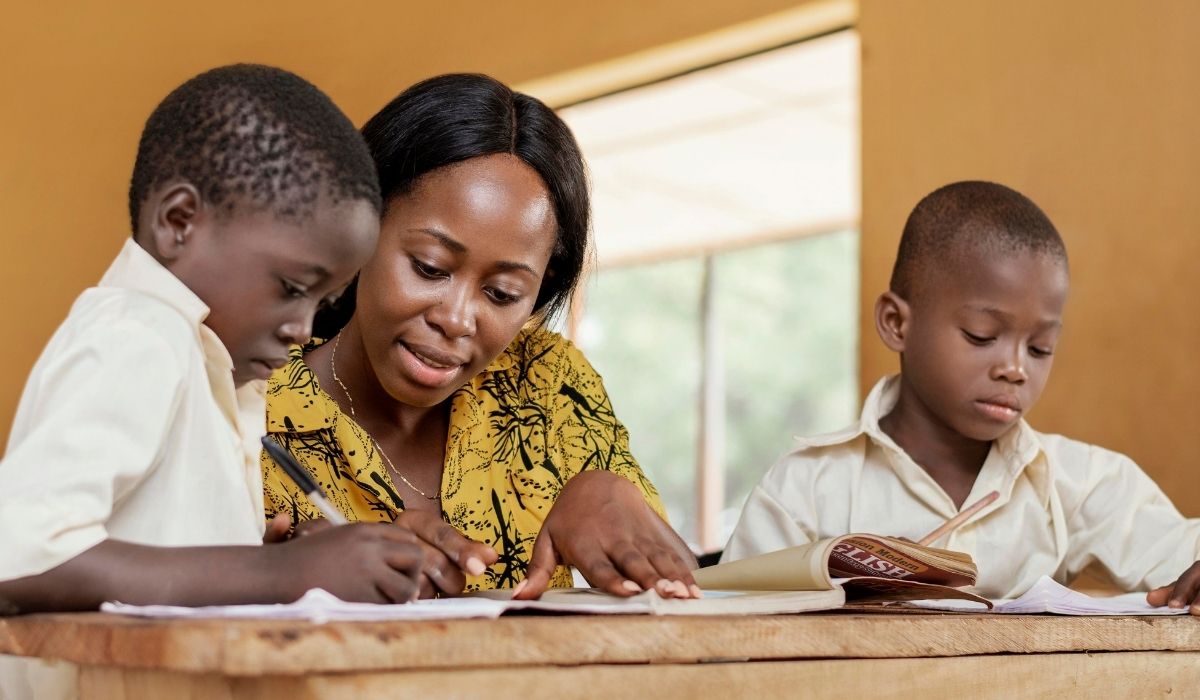Vodacom has always valued the importance of digital technology in education. And despite a series of continuous developments in the sector, there have been several hurdles for the students in the past few years. For the more than 700 000 learners who wrote the National Senior Certificate (NSC) exams at the end of 2021, matriculating high school has called for determination, perseverance and resilience.
It is no secret that the COVID-19 pandemic disrupted schooling in the past two years. For instance, research by Umalusi, the council for quality assurance in education, shows that 50% of learning was lost by the students’ Grade 11 year. These difficult circumstances were compounded by the ongoing uncertainty and anxiety surrounding the coronavirus, as well as the national unrest and load-shedding that took place in 2021.
Digital technology had a powerful role to play in supporting Grade 12 learners during these challenges. Learners with access to a device and connectivity could access CAPS-aligned educational content and continue with their studies remotely to work towards their matric certificate.
In addressing this critical need, Vodacom zero-rated its e-School digital educational platform, which was developed in partnership with the Department of Basic Education (DBE) in 2014. The portal experienced a significant increase in registrations at the start of the national lockdown in April 2020 and now has more than 1 million users accessing free, online educational content, aligned to the national curriculum for Grades R to 12.
“As we congratulate those learners who have passed the NSC exams, we need to recognise the importance of digital technology in our education system. Many of the achievements we hear about today have been made possible by access to quality education through connectivity. As we continue to navigate our way through the pandemic, with many learners going back to school, online educational resources should be part of everyday education support, in or out of the classroom.”
Takalani Netshitenzhe, External Affairs Director, Vodacom South Africa
While the pandemic has accelerated the need for digital transformation in the classroom, it has highlighted the existing digital divide in schools, particularly in rural areas, where there is often a lack of infrastructure, resources and skills to make online learning a success. This has the potential to put thousands of South African learners at risk of being left behind.
“Tackling these educational challenges requires collective commitment – between government, the private sector, non-profit agencies and citizens. That is why Vodacom has partnered with the DBE to pioneer a multifaceted education ecosystem model to significantly improve access to quality education at all levels, from early childhood development to Grade 12. Technology is the key to these initiatives, levelling the playing field by enabling access to education for all and equipping the next generation for the digital economy.”
Takalani Netshitenzhe, External Affairs Director, Vodacom South Africa
As part of Vodacom’s commitment to increase access to quality education in South Africa, the techco has joined the DBE in honouring the top 33 achievers in the 2021 NSC exams. Vodacom is supporting these matriculants in the next step of their studies by providing them with tablets and mobile phones, as well as offering bursaries for tertiary education.
“While these graduates have an exciting future ahead of them, we must draw attention to the important role of education for the future of our country. Without education, we cannot empower people with the knowledge and skills needed to make a significant contribution to society. By working with government to strengthen our basic education system, and through harnessing the power of technology, we can help to overcome poverty, unemployment and inequality and go further together for a better South Africa.”
Takalani Netshitenzhe, External Affairs Director, Vodacom South Africa











